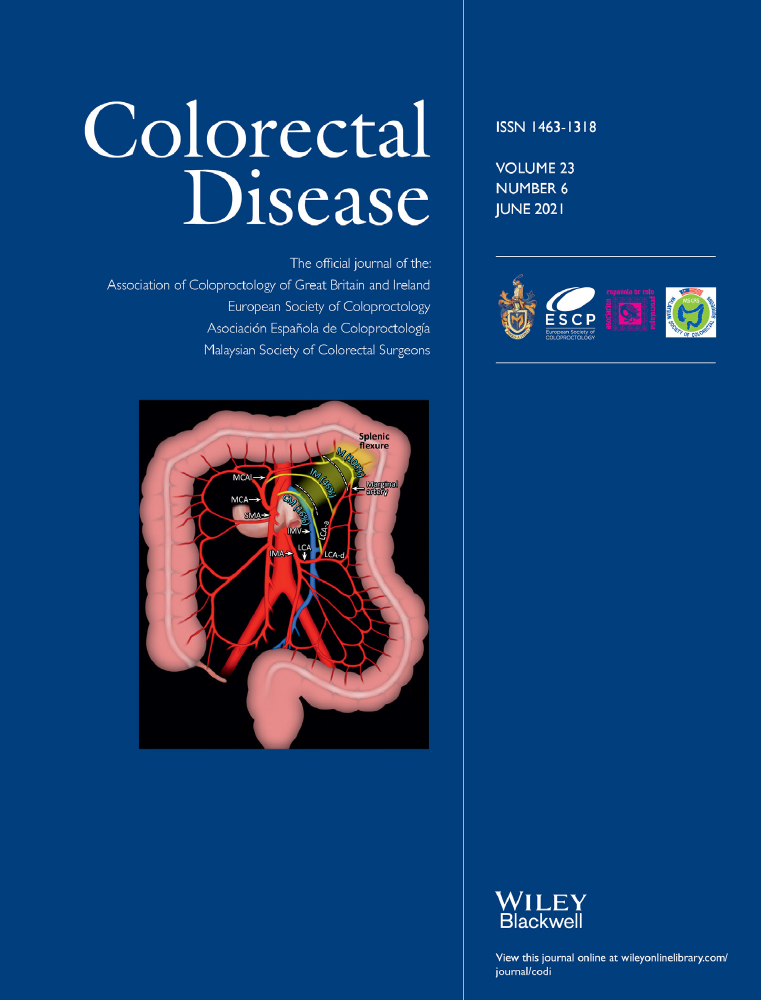Long-term bowel function patient-reported outcomes after successful chemoradiation for carcinoma of the anal canal
Abstract
Aim
We aimed to evaluate long-term changes in patient-reported bowel function from presentation of anal canal squamous cell carcinoma (SCC) successfully treated with the modified Nigro protocol using a patient-reported outcome measure for bowel function.
Method
This is a retrospective study of prospectively collected patient-reported outcomes for bowel function. We included patients that were successfully treated with the modified Nigro protocol for anal SCC and had completed the Colorectal Functional Outcomes (COREFO) questionnaire at presentation, following the modified Nigro treatment (post-Nigro), and at subsequent surveillance visits (medium and long term). We compared the differences in mean domain and total COREFO scores using a paired t test for each paired time point.
Results
Twenty-seven patients met inclusion criteria. Time from completion of the modified Nigro was post-Nigro at 3–6 months, medium-length follow-up at 8–12 months and long-term follow-up at 12–18 months. There was significant improvement in the stool-related aspects domain (pain, bleeding and anal skin irritation) from presentation to our short- and medium-length follow-up (42.5 to 23.7, P = 0.01). There was worsening in the frequency domain in the medium term (7.23 to 14.5, P = 0.02). There were no differences in any other domain or time point.
Conclusion
Global bowel function does not appear to change following successful treatment of anal canal SCC with the modified Nigro protocol in the long term. There are some improvements in stool-related aspects and worsening in bowel movement frequency at medium-length follow-up. These findings should help surgeons counsel patients with regard to bowel function expectations for those with anal canal SCC in the long term.
CONFLICT OF INTERESTS
There are no conflicts of interest on the part of any named author.
Open Research
DATA AVAILABILITY STATEMENT
The data that support the findings of this study are available on request from the corresponding author. The data are not publicly available due to privacy or ethical restrictions.




